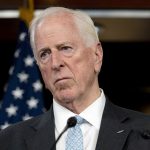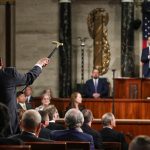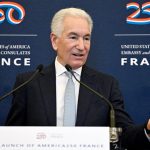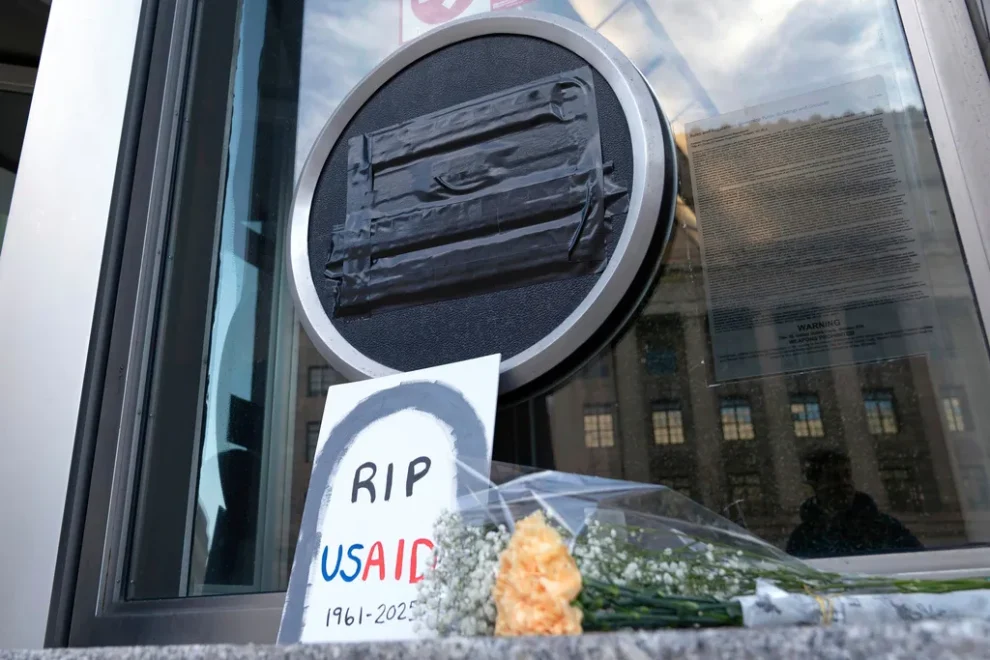Throughout this week, the Washington Examiner’s Restoring America project will feature its latest series, “Reforming the Deep State: Reining in the Federal Bureaucracy.” We invited some of the best policy minds in the conservative movement to speak to the issues of what waste, fraud, abuse, and unaccountability exist throughout the federal government and what still needs to be done. To read more from this series, click here.
EXCLUSIVE — As a skeleton crew of White House personnel clear out the United States Agency for International Development and prepare to flip the lights off for good, the State Department is staffing up for its new role directly overseeing foreign aid.
The mission is not to end U.S. disbursement but to radically overhaul the logistics, goals, and effectiveness toward an “America First” brand of assistance tied intimately with the nation’s interests abroad.
Ukraine is a prominent example of this new mentality: fewer diversity, equity, and inclusion initiatives, and more military support.
“We refocused a lot of the Ukraine programs that were full of DEI stuff, consulting, capacity building — we refocused that on stuff that actually is going to help Ukraine, as the president said, hold off Russian advances and win this war and bring about peace,” a senior State Department official told the Washington Examiner. “So that means mobile firing teams and anti-drone technology that’s going to help keep civilians safe.”
African countries can also expect a fundamental change in strategy moving forward, where the State Department hopes to muscle in on the Chinese Communist Party’s near-monopoly on infrastructure projects through its exploitative Belt-and-Road Initiative.
CLICK HERE TO READ MORE FROM THE ‘REFORMING THE DEEP STATE’ SERIES
“We had a funny meeting with an African country that said, ‘I buy my weapons from the Russians, the Chinese build my infrastructure, and you pay for all my humanitarian assistance and my health.’ And while we continue to be very proud of our humanitarian assistance efforts … that doesn’t mean that we shouldn’t be competing with China in terms of building real infrastructure,” the senior official told the Washington Examiner.
These planned changes provide sharper detail to a congressional notification widely reported on Wednesday, outlining the State Department’s “America First Foreign Assistance” changes.
“The national security interests of the United States require that the United States utilize these foreign assistance funds to meet new challenges in ways that make America safer, stronger or more prosperous,” the document stated.
Among the other avenues of American foreign assistance are investments in Greenland and funding for efforts combating “Marxist, anti-American regimes” in South America.
A State Department spokesperson said the U.S. “will prioritize trade over aid, opportunity over dependency, and investment over assistance.”
Officials hope to build this new vision by intimately tying foreign aid to “diplomatic priorities, to our strategic priorities, to the priorities of our ambassadors in the field, our chief of mission, and our regional bureaus, our national security objectives, all of that.”
“We were really thoughtful when looking at the State Department org chart,” the senior official told the Washington Examiner. “We obviously went through our own reorganization — the largest since the Cold War — where we really sort of focused each bureau in the State Department on its core function. And when we did that we were looking at bureaus that have a competency that’s connected to foreign assistance.”
Those paying attention to the State Department’s Substack might not be particularly shocked by recent developments. The blog — a platform for the department to explain policy and reflect on more philosophical questions of U.S. foreign relations — announced that such a change was coming back in July.
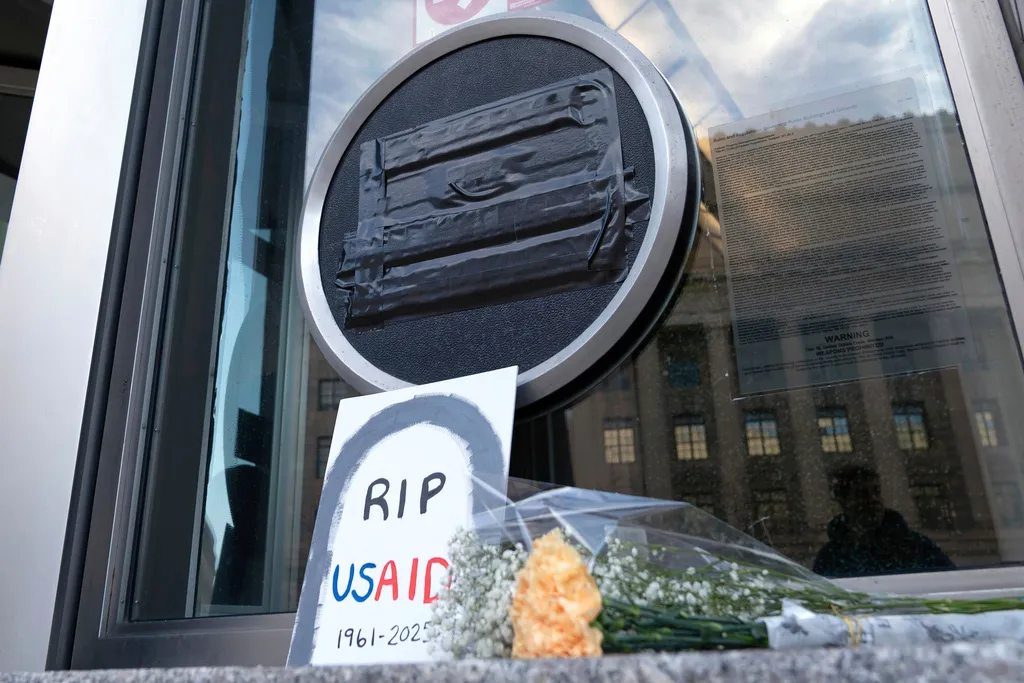
“This era of government-sanctioned inefficiency has officially come to an end. Under the Trump Administration, we will finally have a foreign funding mission in America that prioritizes our national interests,” Rubio wrote in the post titled “Making Foreign Aid Great Again.”
The July essay addressed at length the Trump administration’s assessment of foundational issues within USAID, such as its self-conception as a charity instead of as an arm of foreign policy. Rubio asserted that USAID “viewed its constituency as the United Nations, multinational [nongovernmental organizations], and the broader global community” instead of the U.S. taxpayers.
“We will not apologize for recognizing America’s longstanding commitment to life-saving humanitarian aid and promotion of economic development abroad must be in furtherance of an America First foreign policy,” Rubio wrote. “We will favor those nations that have demonstrated both the ability and willingness to help themselves and will target our resources to areas where they can have a multiplier effect and catalyze durable private sector, including American companies, and global investment.”
Deep state pushback
Trump’s move to dismantle and defund USAID almost immediately after taking office riled Democratic lawmakers and progressive activists who accused the administration of overreach.
Administration officials and Republican lawmakers backed the president’s decision by pointing to a flurry of receipts for questionable expenditures — transgender operas in Colombia; diversity, equity, and inclusion programs in Serbia; LGBT activism in Guatemala.
But the USAID bureaucracy did not go quietly.
Rubio complained in February of insubordination by USAID staff and attempts to obfuscate the details of their programs. He accused the personnel of “deciding that they’re somehow a global charity separate from the national interest or taxpayer dollars.”
A flurry of litigation followed as employees, activists, and NGOs funded by USAID took action against the unilateral dismantling of the agency.
“There are obviously a lot of people in the bureaucracy who are not happy; they tried to thwart us,” the source told the Washington Examiner, noting that such “insubordination” was “part of the reason why the administration determined that USAID needed it to be brought under state.”
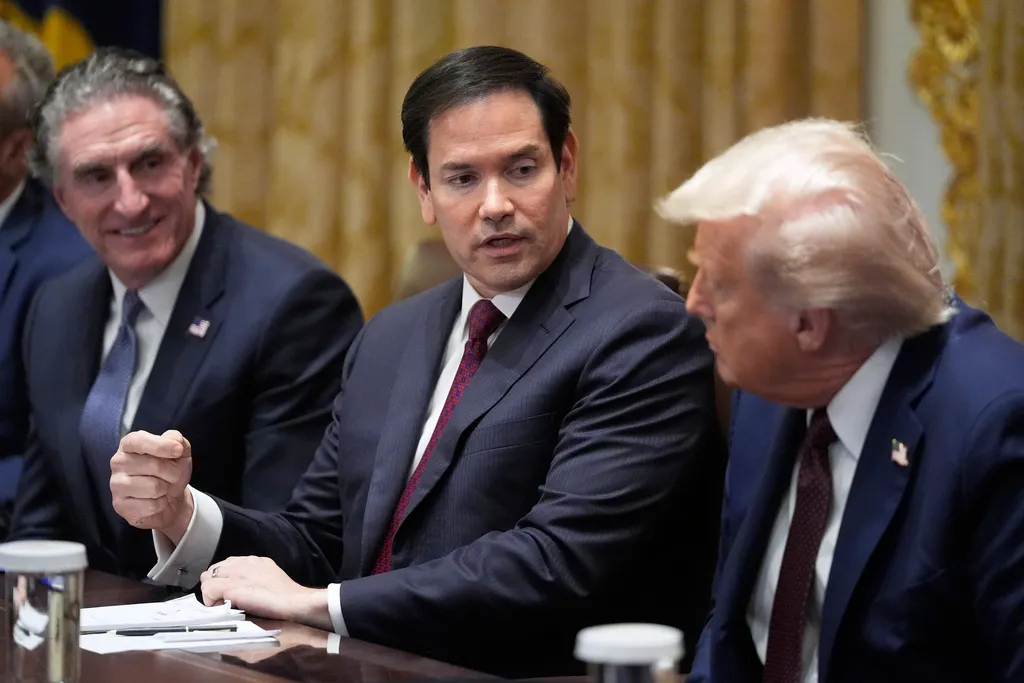
“There have been a lot of challenges with some overzealous activist judges,” the source told the Washington Examiner. “We have won pretty much every single case related to USAID — vindicating the fact that the administration acted lawfully. But we’ve dealt with a lot of litigation from interest groups, NGOs, the whole deep state establishment … Obviously, we’ve complied with every court order that we have had to deal with, but that’s been a real hangup.”
The National Endowment for Democracy is among the most high-profile organizations affected by USAID’s uprooting and one of the few that managed to claw back some of its funds.
The semi-autonomous NGO, founded by congressional mandate under President Ronald Reagan in 1983 to combat communism and spread democracy around the world, has traditionally enjoyed broad support from both Republican and Democratic lawmakers.
But the NED became one of former de facto Department of Government Efficiency head Elon Musk’s most high-profile targets when the tech billionaire was enlisted to slash government spending. He accused the NGO of perpetrating unspecified “crimes” and claimed it was “rife with corruption” before ordering DOGE to block Treasury disbursements of congressionally-mandated funding for NED in February.
“Anyone with integrity needs to resign from NED,” Musk said in February. “That evil organization needs to be dissolved.”
The NED was forced to put 75% of its staff on unpaid leave and suspend funding for approximately 1,800 foreign aid programs.
In August, following Musk’s departure from the administration and a lawsuit against the federal government, tens of millions of dollars in withheld funds were dispersed to the NED.
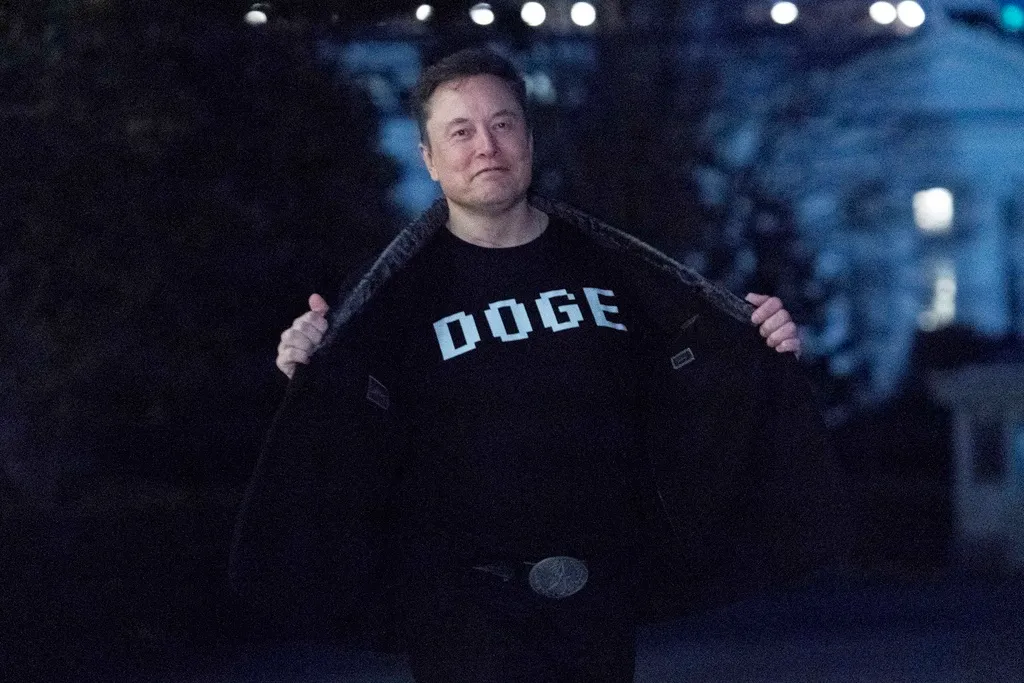
The Washington Examiner contacted the NED for comment concerning its future in the current landscape of U.S. foreign aid, and the statement provided by President and CEO Damon Wilson indicated the organization is prepared to follow the State Department in lockstep.
“The State Department has been clear that U.S. assistance must deliver strategic impact and a return on investment, while ensuring accountability to American taxpayers,” the statement said.
“That’s exactly how NED has sharpened its execution,” Wilson continued, “becoming leaner and more effective so every dollar strengthens freedom abroad while helping ensure a safer, stronger United States.”
As Trump’s crusade continues, many NGOs and other benefactors of the old system will be forced to get in line or risk losing funding.
“Obviously, there were very big cuts, which made this debate very emotional,” a high-ranking expert in foreign aid implementation told the Washington Examiner. “We turned off a lot of programs overseas … and the turnoff did have a negative impact on American soft power and American interests. You got a lot of job losses in [the District of Columbia, Maryland, and Virginia] on that. I know that’s not politically potent these days, because nobody likes D.C.”
The source, who spoke to the Washington Examiner on condition of anonymity, works at a prominent NGO and said he believes “once we get past the emotion” of the change, the foreign aid sphere will be able to better understand “what the path forward is.”
They noted that while the Trump administration can prove difficult for some entrenched organizations to deal with due to “how dogmatic they are about their priorities,” such expectations for conformity have been “something that NGOs have had to do to some degree under any given administration.”
“If we go back and read our history and modern history properly, there were plenty of Democrats who had their criticisms of USAID over the years and wanted to put it under the State Department to some degree,” he told the Washington Examiner.
USAID remains technically extant as a government entity, with the Office of Management and Budget supplying a bare-bones team overseeing its final close-out and ensuring the proper transfer of funds into the State Department programs.
But by almost any measure, the agency is already dead.
RUBIO HANDS OFF ONE OF HIS FOUR JOBS BY PUTTING VOUGHT IN CHARGE OF USAID
The Washington Examiner reached out to multiple personnel on the USAID communications team, but they offered no comment on the future of operations.
One member of State Department personnel expressed surprise to the Washington Examiner that the outlet found anyone to contact at USAID, an agency that “no longer exists.”

